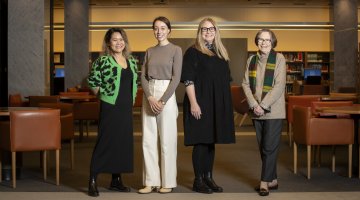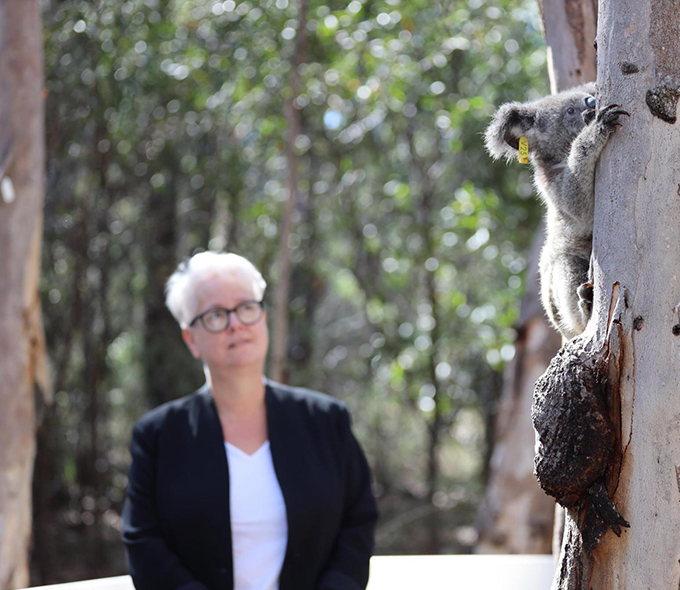The Committee on the Protection of the Rights of All Migrant Workers and Members of their Families today concluded its consideration of the combined second and third periodic report of Syria on measures taken to implement the International Convention on the Protection of the Rights of All Migrant Workers and Members of their Families, with Committee Experts commending the State on the legislation and international treaties adopted since its last review, while asking questions about measures in place to support Syrian migrants who had returned to their homeland.
Committee Experts welcomed the ratification of the Convention on the Rights of Persons with Disabilities and a protocol against illegal trafficking in migrants. The Committee also welcomed the adoption of new domestic legal resources, particularly the law which protected children against labour, the law protecting against trafficking, and the law on foreign employment and migrants.
The Committee had received information regarding complex situations Syrians faced when returning to their country, including detention and acts of torture. Could more information on that be provided? What had been the response to the call for Syrians to come home, one Expert asked? What measures was Syria taking to guarantee successful reintegration for those who returned? Did the State have a comprehensive programme for return?
In opening remarks, Hussam Edin Aala, Permanent Representative of the Syrian Arab Republic to the United Nations Office at Geneva and head of the delegation, said that since 2011, Syria had been facing war, foreign occupation of part of its territory, and unilateral coercive measures which had effectively led to an economic blockade. Syria had adapted to those challenges, while continuing to implement and develop the national framework for the protection of migrant workers and members of their families.
In response to questions, the delegation said Syria’s doors were open for Syrians to return to their country. Stakeholders were working to facilitate the return of Syrians through ensuring their basic needs. Damascus had hosted three conferences since 2020 to support refugees, helping Syria to conduct reconstruction. Reception centres for refugees had been opened, which allowed Syrians living abroad to return, even with expired passports. The national reconciliation strategy adopted by the Government had seen the return of over one million refugees from countries such as Türkiye and Lebanon.
In concluding remarks, Mr. Aala thanked the Committee for its positive engagement with the State and understanding regarding the exceptional circumstances faced in Syria. He said that the State party would work to address the recommendations of the Committee.
In his concluding remarks, Edgar Corzo Sosa, Committee Chair, said the information provided by the delegation would inform the Committee’s concluding observations and would contribute to improving the standing of all migrant workers in Syria. Mr. Corzo Sosa thanked the delegation for participating in the dialogue, and called on the State party to implement all of the Committee’s recommendations.
The delegation of Syria was comprised of representatives of the Ministry of Social Affairs and Labour; Syrian Commission for Family and Population Affairs; Ministry of Interior; and the Permanent Mission of Syria to the United Nations Office at Geneva.
The webcast of the Committee on the Protection of the Rights of All Migrant Workers and Members of their Families meetings can be found here. All meeting summaries can be found here. Documents and reports related to the Committee on the Protection of the Rights of All Migrant Workers and Members of their Families thirty-fifth session can be found here.
The Committee will next meet in public at 3 p.m. on Tuesday, 27 September to hold a half-day of general discussion on general comment 6 on the convergence of the Convention and the Global Compact for Migration.
Report
The Committee has before it the combined second and third periodic report of Syria (CMW/C/SYR/2-3).
Presentation of Report
HUSSAM EDIN AALA, Permanent Representative of the Syrian Arab Republic to the United Nations Office at Geneva and head of the delegation, said that since 2011, Syria had been facing war, foreign occupation of part of its territory, and unilateral coercive measures which had effectively led to an economic blockade. Its deep negative impact on decades-long economic and social development had pushed many Syrians to leave the country. Syria had adapted to those challenges, while continuing to implement and develop the national framework for the protection of migrant workers and members of their families, to accommodate them in accordance with the Convention.
Syria aimed to combat the scourge of trafficking in persons and transnational organized crime by strengthening prevention mechanisms, protection mechanisms for victims, and by addressing the needs of children and women. The Government had also taken steps to facilitate procedures related to civil status, in particular birth registration, and had made several amendments to the Civil Status Law to facilitate and simplify the procedures for its citizens at home and abroad.
The difficulties of daily life, which had seen the effects of terrorism practices mixed with the effects of the unilateral coercive measures, had caused a large number of Syrians to leave the country as refugees and migrants. Some of them had taken illegal routes, using forged documents or paying large sums of money to smuggling networks in border areas. The Government called on all Syrians who had been compelled to leave due to the crisis to return to their country voluntarily and in a dignified way. The State was working in cooperation with the United Nations High Commissioner for Refugees and other United Nations agencies to facilitate the return of those people to their areas of origin, following their liberation from terrorism.
The State was also facilitating the rehabilitation of infrastructure, securing housing, implementing programmes to create jobs, improving basic health services, and ensuring returnees were integrated into educational processes. Some countries were impeding the efforts of the Government for political reasons. Challenges facing migrant workers notably included the limited resources for financing of cooperation programmes with international organizations, especially in the electricity and water sectors.
Mr. Aala said that political will was essential when it came to promoting humane and legitimate conditions for migrant workers, and to address the issue of illegal migration, which exacerbated the vulnerabilities of migrants. That required activating bilateral agreements between labour-exporting and -receiving countries, as those agreements would constitute a safety-valve for regulating migration and preventing the growth of illegal migration and the violations committed in its context. Development was one of the keys to addressing illegal migration.
Supporting the Sustainable Development Goals in migrants’ countries of origin would help provide livelihoods and employment opportunities in exporting countries. It was important to review national and international frameworks to combat crime in order to ensure tighter penalties and effective means of monitoring. That would ensure that illegal migration was viewed as a humanitarian, social and economic crisis, rather than as organized crime.
Questions by Committee Experts
KHALED CHEIKHNA BABACAR, Committee Expert and country co-rapporteur for Syria, said the situation the country was facing called for increased vigilance against potential violations of the rights of migrant workers. Developments recorded since the last review were welcomed, including the ratification of new instruments which aimed to ensure better protection for migrant workers. There were gaps when it came to the implementation of the Convention. The Law on Non-Syrian workers put into question the place of migrants in the labour market, especially those who were not Arab. There were challenges when it came to accessing statistics, and the absence of data meant that the Committee could not form a reliable assessment regarding the implementation of the Convention. Many Syrians now lived abroad; there should be interest in reaching bilateral agreements with countries hosting Syrians, to ensure they enjoyed protection and their rights as enshrined under the Convention.
MOHAMMED CHAREF, Committee Expert and country co-rapporteur for Syria, said Syria had been a great country for immigration and emigration. Syria was one of the earlier countries to ratify the Convention; could information be provided on existing follow-up mechanisms, as well as mechanisms for implementation? What was the status of the national human rights institution under the Paris Principles? What initiatives were in place to protect migrant workers? How was the Convention disseminated in Syria? Was it accessible to migrant workers, and how was it perceived? What measures had been taken to combat stereotypes and discrimination against migrants and their families in political discourse, the media and in other areas?
What measures were being taken to prevent abuse at borders? Could data be provided on migrants, disaggregated by sex, age and geographic location? What was being done to ensure the return of migrants to the country? What programmes were being rolled out to prevent children and teenagers from permanently leaving the country? What programmes were in place to encourage the return of that population? Were there specific programmes for children and women? It would appear there were stateless people in Syria. It also seemed as if Syrian legislation did not allow the transfer of nationality through the maternal line; was anything being done to remedy that?
A Committee Expert recognised Syria’s efforts to submit its report, given what was occurring in the country. As Syria was a country of origin for migrants, bilateral Conventions should be signed with host countries in order to attain a better level of protection for migrants. What was the status of the national human rights institution? Was it independent?
A Committee Expert asked for information about the policies and measures in place to provide consular assistance in various countries where the Syrian population had moved in recent years. The Committee had received information regarding complex situations Syrians faced when returning to their country, including detention and acts of torture. Could more information about that be provided? Had there been complaints lodged, and if so, what were the outcomes of those cases?
A Committee Expert congratulated Syria for the relevant information provided in the report, and expressed solidarity with Syria for the difficult situation the country faced. What efforts were being made by the Government to resolve the lack of data on Syrians abroad? Had Syria ratified the Convention relating to the Status of Refugees? If not, why not? What steps were being made in that direction? Were there mechanisms in place allowing the determination of statelessness? Did migrants in Syria have access to justice? Had Syria ratified the International Labour Organization’s Domestic Workers Convention? It was important as many female migrant workers ended up in that sector.







